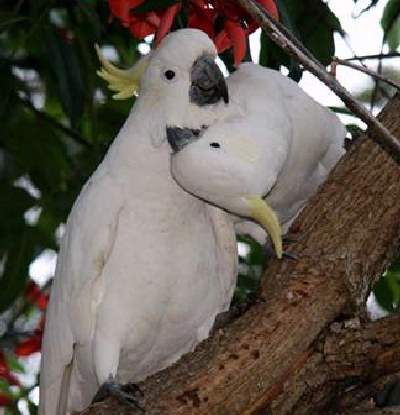
In addition to providing opportunities for exercise and play within your bird’s cage, it is just as important to give your triton cockatoo time to explore outside of the cage. Make sure to provide your pet with plenty of perches, toys, and branches to offer plenty of opportunities for mental and physical activity. As a result, it may be wise to keep your birds in separate cages. However, it’s important to keep in mind that cockatoos, particularly triton cockatoos, can actually be somewhat aggressive animals. If you plan to house more than one bird in the same cage, the enclosure should be much larger. Ideally, the cage should be no smaller than 4’ x 4’ x 8’. These birds need lots of physical activity and can sometimes be destructive, so it’s important to provide a cage that is sturdy. When choosing a cage for your triton cockatoo, make sure to choose something that is relatively large. Due to the amount of noise these birds are capable of making, however, it is not recommended that you keep your triton in an apartment or condo where your neighbors live in close proximity. With patience and persistence, it is possible to train your bird to perform certain behaviors and even lessen unwanted screeching and other verbalizations. Thankfully, tritons are intelligent and can learn new things fairly quickly. Sadly, as a result of this behavior, many triton cockatoos are rehomed. Unfortunately, they also have a propensity for screaming, which can make them difficult to manage.

They tend to form a very strong bond with their primary caretaker, but may not be as friendly with other humans and can even be aggressive. However, the triton cockatoo is also known for being excessively attached to its owner and can even become needy. Overall, the triton cockatoo is known for being very affectionate, intelligent, and playful, making these birds attractive pets. Image Credit: RAJU SONI, Shutterstock Temperament

You can tell triton cockatoo from its sulphur-crested cousin because it is smaller, has a blue ring around its eye, and has broader feathers on its crest. Triton cockatoos are not their own distinct species, but a subspecies of the better-known sulphur-crested cockatoo. The triton cockatoo is native to Indonesia, New Guinea, and the West Papuan Islands.


 0 kommentar(er)
0 kommentar(er)
